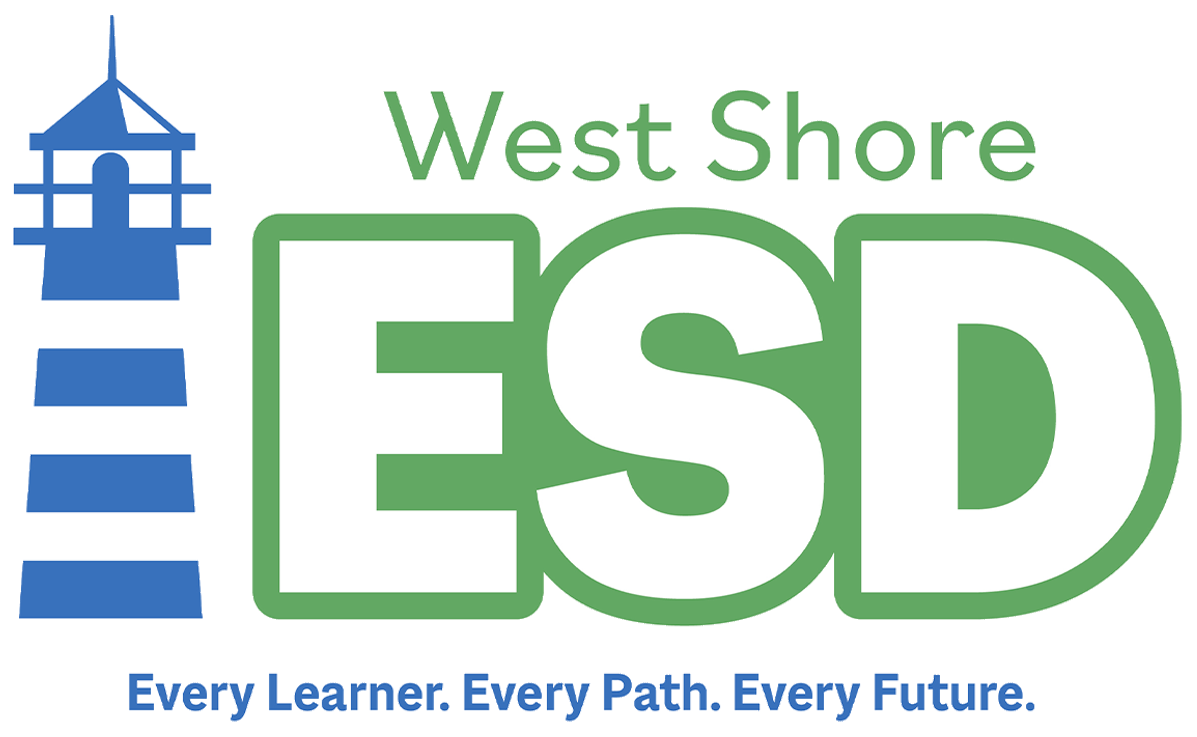Everybody likes a caramel apple bar, especially if there are scrumptious options like melted chocolate, crushed peanuts, pretzel crumbs, toasted coconut, miniature marshmallows and sprinkles.
A delightful assortment of dips and toppings made a caramel apple bar the perfect treat for a fall gathering of Falcon Friends, Pentwater Public Schools’ peer-to-peer social support program.
Falcon Friends periodically brings together about 40 Pentwater students of different ages for a couple of hours of fun activities.
Some of the students have autism and spend part of their school day learning acceptable social behaviors at the West Shore ESD.
Most of the Falcon Friends are general education students who are learning about disabilities and how to build rapport with kids who think differently.
“Peer-to-peer activities give students a chance to buddy up,” said Lisa Weber, a teacher consultant with the WSESD. “Teachers teach their students many things, but they cannot, for example, teach a teenage boy how to behave like a teen-age boy.
“For that,” she added, “they need peer role models. This is where Falcon Friends steps up."
 Reintegration into the general education population to the extent possible is always the goal of special education services in Michigan, yet too often children with autism and other disabilities feel socially isolated from their peers, Weber said.
Reintegration into the general education population to the extent possible is always the goal of special education services in Michigan, yet too often children with autism and other disabilities feel socially isolated from their peers, Weber said.
Weber – who was a teacher in Scottville for 14 years – now trains educators across the three county ESD region how to better support students with autism.
 Pentwater schools, like Hart Public Schools, have peer-to-peer programs that use neuro-typical general education students to teach good social behaviors.
Pentwater schools, like Hart Public Schools, have peer-to-peer programs that use neuro-typical general education students to teach good social behaviors.
The high school students can even earn academic credit.
Sixty-seven percent of Pentwater students in Falcon Friends indicated in a survey that it was their favorite course, and it’s not difficult to guess why.
In addition to the caramel apple bar, students attending the fall meet-up connected over a book walk and walking trails. They also played on the playground together.
 “Engaging in shared activities has led to some friendships among students who might not have otherwise met,” Weber said. “All the students gain new skills. These interactions build a more positive and accepting school culture for everybody.”
“Engaging in shared activities has led to some friendships among students who might not have otherwise met,” Weber said. “All the students gain new skills. These interactions build a more positive and accepting school culture for everybody.”
Being intentional about students with disabilities having opportunities to make friends is important, Weber said, because they tend to remain in the same community throughout their lives. The belief is they will be happier people and more engaged citizens if they have neighbors who know, and understand, and invite them to “belong.”
 “This made it easier for me to talk to people and helped me become more social,” one student wrote in a course review. “It also helped me find different ways to act around people with a certain personality. It helped me learn about how to talk to people and how to stay away sometimes because of them wanting space.”
“This made it easier for me to talk to people and helped me become more social,” one student wrote in a course review. “It also helped me find different ways to act around people with a certain personality. It helped me learn about how to talk to people and how to stay away sometimes because of them wanting space.”
Several of the Pentwater general education students said learning about neuro diversity was an eye-opener. Some noted that because of Falcon Friends they had become empathetic and better students themselves.
Student comments included:
• “I’ve always been able to talk to people, but I am getting better at learning what to say and when. And I think before I say stuff.”
• “When someone needs help, I think I’m better now at noticing.”
This is the legacy of Falcon Friends.
 Program background
Program background
Peer-to-peer programs like Falcon Friends are affiliated with an initiative of the Autism Education Center at Grand Valley State University called START, an acronym for Statewide Autism Resources and Training.
The Michigan Department of Education has funded START since 2001 to provide resources that expand awareness and build skills that create inclusive communities.
According to the START website,
There are 619 Michigan schools that have peer-to-peer programs. These programs support 6,078 students with autism with 20,677 of their neuro-typical peers.
One out of every 36 children born in the United States these days will likely be diagnosed with Autism Spectrum Disorder, according to the latest statistics available from the Centers For Disease Control. Autism affects about 2.8 percent of the population.

